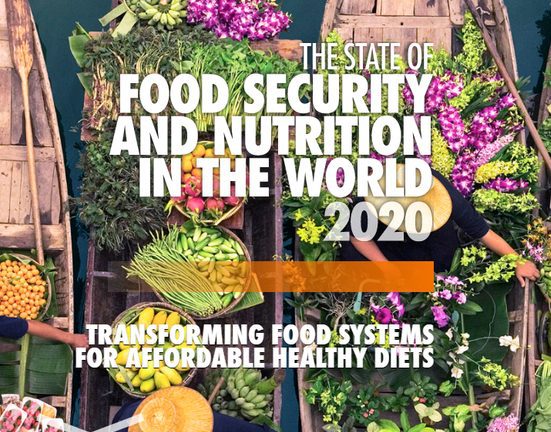Washington, D.C. – A new report released today by the United Nations says that global hunger and malnutrition have risen for the fifth year in a row, and the fallout from the COVID-19 pandemic is making the situation worse. According to the State of Food Insecurity and Nutrition in the World 2020 (SOFI), by the end of 2020, the COVID-19 pandemic could tip 132 million more people into hunger. Bread for the World is urging Congress to including at least $12 billion in the next COVID-19 supplemental legislation to help countries address the COVID-19 pandemic and fund global food security and nutrition programs.
“This report confirms what Bread and others have been warning – the COVID-19 pandemic has become a hunger crisis,” said Rev. Eugene Cho, president of Bread for the World. “Global hunger and malnutrition were already on the rise and now the COVID-19 pandemic is causing a catastrophic surge. It is critical that Congress include funding for global food and nutrition programs in the next COVID-19 supplemental package.”
The report shows that global hunger has been on the rise since 2014. Tragically, the world is also not on track to meet the Sustainable Development Goal of ending hunger by 2030. It is estimated that 690 million people were hungry or malnourished in 2019 – or 8.9% of the world’s population. This figure reflects the revised data from 13 countries and does not include the impact of COVID-19. The findings also show that 2 billion people in the world did not have regular access to safe, nutritious, and sufficient food, 21.3 percent (144 million) of children under 5 years of age were stunted, and 6.9 percent (47 million) children wasted. Even short bouts of hunger as a result of COVID can lead to an increase in wasting and stunting.
Bread and other anti-hunger organizations are asking Congress for no less than $12 billion in international aid to help countries address the COVID-19 pandemic, including at least $2 billion to fund global food and nutrition programs. A bipartisan group of 32 senators have also written a letter to Senate leaders asking that funding for the international response be included the next COVID-19 supplemental package. Last month, the U.N. World Food Program warned that by the end of 2020 the number of people experiencing extreme hunger could nearly double to 270 million as a result of COVID-19. A new report from Oxfam estimates that more people will die of hunger caused by COVID-19 this year than from the virus itself.
“Bold U.S. leadership is needed to stop this global humanitarian catastrophe. God calls on us to help those in need, and the need now is far greater than anything we’ve seen in decades,” said Cho. “We urge lawmakers to include at least $12 billion for global humanitarian and nutrition assistance in the next COVID-19 relief package to help address this crisis. The United States cannot stand by and let millions of people around the world go hungry.”



